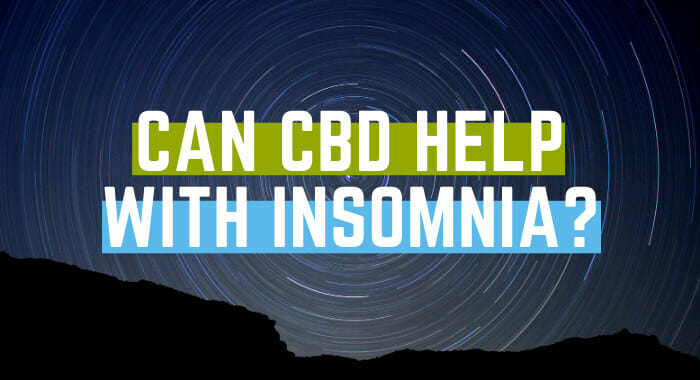CBD for Seniors

There is no reason why the elderly shouldn’t take CBD. If anything, they have more reasons to wish to support their health.
CBD has become fashionable in the past years and mostly young people are experimenting with it. They are typically more adventurous and better informed about CBD and hemp in general. The elderly seem more hesitant, probably because it’s something relatively new and they might not have the amount of information they need to make an informed decision.
Still, CBD is becoming increasingly popular for its potential health benefits, especially among seniors who deal with inflammation, chronic pain, and depression.
A quick recap on CBD
CBD is a non-psychoactive compound made from industrial hemp. It doesn’t produce the “high” associated with marijuana. It’s non-addictive and generally well-tolerated by the human body.
It works thanks to its interaction with the body’s natural endocannabinoid system (ECS). The ECS is responsible for balancing many bodily functions, including appetite, mood, sleep, inflammation, pain, temperature perception, and more. When the ECS is out of sync, CBD may help it regain its balance and run the body more smoothly and efficiently. CBD seems to mimic the action of human cannabinoids when interacting with ECS.
Many seniors suffer from conditions commonly associated with aging:
- According to findings, 47% of older people over 65 have been diagnosed with arthritis.
- 10% of older people suffer from depression
- More than half of people over 65 experience chronic pain.
For these people, their ECS is either not coping well or needs an extra boost from other sources of cannabinoids.
CBD for the elderly: can they benefit?
Pain management
According to studies, a common use of CBD is for pain management. Chronic pain from conditions like arthritis can significantly impact quality of life. Some studies suggest that CBD may help reduce inflammation and alleviate pain, thus providing an alternative to traditional painkillers.
In a recent research, 72% of people with fibromyalgia substituted CBD for their conventional medication, mainly because they didn’t like the side effects of their medication. The research showed that those who substituted displayed better quality of life and pain management compared to those who didn’t.
CBD for sleep
People over 65 experience insomnia more often compared to younger people: almost 50% of people over 65 complain about sleep problems.
A good night’s sleep can go a long way towards improving quality of life. CBD doesn’t seem to interact with the human circadian rhythm to influence how well they sleep. It does, however, appear to help relax the mind — which translates into good-quality sleep. A randomized study showed that people who took CBD experienced less anxiety, which then led to better sleep patterns.
CBD for anxiety and depression in the elderly
Some people may be fooled into thinking that the elderly have no worries and therefore shouldn’t experience anxiety or depression. And yet, 10 to 20% of older adults experience anxiety, which often goes undetected.
The reasons why seniors may suffer from anxiety and depression include isolation, health issues, losing loved ones, and other life changes. CBD’s potential anti-anxiety and antidepressant effects may help offer a more natural approach to handling rough situations.
CBD for neuro-protection
Almost a third of people live with some neurological condition such as Alzheimer’s, Parkinson’s, strokes, multiple sclerosis, epilepsy, and dementia. As the world population grows older, it’s almost inevitable that people living with neurological conditions will increase.
A CBD-based medicine called Epidyolex is already available for a rare type of children’s epilepsy, so there is some evidence that CBD can help with one neurological condition.
A recent review assessed the trials regarding the effectiveness of CBD with regards to some other neurological conditions. It found promising findings for some, such as Parkinson’s, but not for others, such as Huntington’s disease. There needs to be more research to establish if and how CBD can help the elderly with neurological conditions.
Being cautious with CBD
A lot remains unknown regarding CBD, so you should talk to your GP before trying it. There are several good reasons for this, from potential interactions with other medicines to concerns about dosage. The NHS doesn’t consider CBD as a medicine but only as a supplement, therefore, it doesn’t offer a recommended daily allowance—although the FSA does suggest a maximum daily dose of 10 mg for adults.
Drug interactions
Many seniors are already on various medications. Almost 20% of people over 65 take anti-depressants. Also, some 70% of the elderly have high blood pressure and take—or should take—medication for that. Such medications often interact with CBD, so seniors wishing to try CBD should keep this in mind.
The young vs. the elderly: how do they use CBD?
There is a considerable difference between how younger people and older people take CBD.
Younger people often turn to CBD for issues such as stress, anxiety, and insomnia. There is a growing trend towards CBD as a lifestyle component and many people take it to improve their well-being and wellness.
Many young adults also use CBD as a preventive measure or as a part of their fitness and recovery routines. They might take it before or after a workout, for example, or include it in their drinks and food as a broader lifestyle choice, often influenced by trends.
Conversely, older individuals usually consider CBD for managing chronic health conditions that become more prevalent with age.
For example, seniors tend to use CBD for pain relief, particularly for arthritis and other forms of chronic pain, as well as for sleep disorders, anxiety, and depression related to aging or life changes. They might also experiment with CBD for its potential neuroprotective effects, especially in the context of neurodegenerative diseases such as Alzheimer’s and Parkinson’s.
Younger people generally have fewer health complications and are less likely to be on multiple medications, which can simplify their CBD usage. They also tend to be more experimental with dosages and forms of CBD, such as oils, edibles, or vapes, while seniors prefer more traditional forms like capsules or topicals due to ease of use and familiarity.
CBD for the elderly: safe and effective use
The fact that CBD is a natural compound doesn’t mean that seniors shouldn’t assess key features before they experiment with it. How can they use CBD in a safe and effective way?
Review medications for interactions
The most important step is to talk with your GP, ideally one knowledgeable about CBD. Mention any medication you are on, even over-the-counter ones.
Seniors often take multiple prescriptions, and CBD can interact with several medications, including blood thinners, heart medications, and sedatives. A GP can help identify and manage these interactions.
Understand dosage and administration
There is no recommended dosage, let alone a dosage for elderly people. Start slow and increase the dosage gradually. Start with 5-10 mg per day and see how your body reacts.
Seniors have a slower metabolism than younger people. This means they process CBD slower and may not need large doses as CBD stays in their body longer and takes effect for more time.
Check product quality and source
Given the lack of strict regulation in the CBD market, always choose high-quality products from reputable sources—check out our reviews of the best UK CBD Oil brands and the best UK CBD Oil shops. Look for products that have been third-party tested for purity and potency. Labels should clearly list CBD content and provide a certificate of analysis (COA).
Potential side effects
While CBD is generally well-tolerated, it can cause side effects such as drowsiness, dry mouth, and gastrointestinal issues. Seniors should be aware of these potential side effects and monitor how their body responds to CBD. Large doses could linger in the body for longer and cause more side effects than expected.
Consider any health conditions
Some conditions might be contraindicated for CBD use. For example, individuals with liver issues or certain mental health conditions should use CBD with caution. Glaucoma patients should also avoid it, as it may increase intraocular pressure. The best person to guide you and assess these risks is your GP.
Monitor and record effects
Keep track of how your body reacts to CBD and match it to your health expectations. You can keep a journal of CBD usage, including dosage, frequency, and any observed effects. Not only does it help you, but it can also help your GP assess if and how CBD benefits you. You can then decide about continuing or adjusting the treatment.
CBD for the elderly: why not?
CBD may help many seniors lead happier and more relaxed lives, supporting their health and well-being. A number of studies and trials are planned or underway, so hopefully we’ll soon know more if CBD can help with specific conditions and health issues that trouble the elderly. Until then, you can talk to your GP, try out CBD for yourself, and see if it helps support your health and well-being!
Nicholas Rossis, PhD is a specialized, NSF-trained writer who has written hundreds of posts on CBD and nutritional supplements. His work combines critical acclaim with the analysis of the latest news, studies, research, and legal developments in the world of CBD, providing readers with valuable data and insights.






